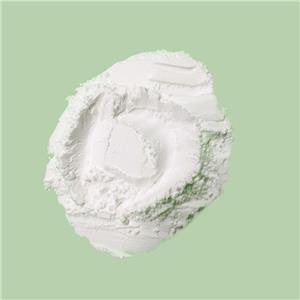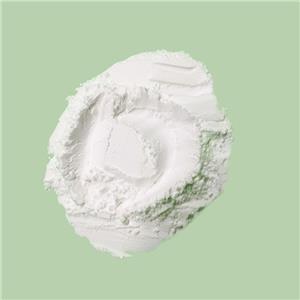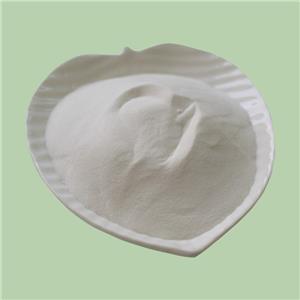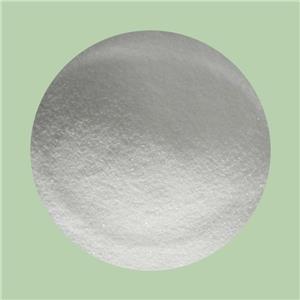Rollen af nikkelfluorid (NiF2) i magnetiske lagringsenheder
Magnetic storage devices have revolutionized data storage, enabling the digital age's vast amounts of data to be efficiently stored and retrieved. Among the many materials used in the construction and enhancement of these devices, nickel fluoride (NiF2) plays a crucial role. This article delves into the specific applications of nickel fluoride in magnetic storage devices, detailing its properties, mechanisms, and the benefits it brings to the technology.
The Properties of Nickel Fluoride
Nickel fluoride (NiF₂) exhibits several properties that make it relevant for magnetic storage applications. Here are some key aspects:
1、Magnetic Properties: Nickel fluoride itself is not inherently magnetic, but it can be doped or used in conjunction with magnetic materials to influence their magnetic properties. For example, it can affect the coercivity (resistance to demagnetization) of magnetic materials.
2、Chemical Stability: NiF2 is chemically stable, which is important for its use in storage media that require long-term stability and resistance to corrosion.
3、Optical and Electrical Properties: These properties can influence its utility in thin-film technologies, which are common in magnetic storage media like hard drives and magnetic tapes.
4、Crystal Structure: Nickel fluoride typically crystallizes in a tetragonal crystal structure, which can affect its physical and magnetic behavior when integrated into magnetic storage materials.
5、Compatibility: It's crucial for materials in magnetic storage to be compatible with the overall design and manufacturing processes of storage devices, ensuring reliable performance over time.
Applications in Magnetic Storage Devices
Nickel fluoride is integral to various components and processes in magnetic storage devices. Here are the specific applications:
1、Hard Disk Drives (HDDs)
Hard disk drives store data on platters coated with magnetic materials. Nickel fluoride is used in these coatings to enhance performance:
● Magnetic Thin Films: NiF2 is used in the fabrication of thin magnetic films. These films are created through processes such as sputtering and chemical vapor deposition (CVD). The thin films provide the necessary magnetic properties to store data efficiently.
a. Sputtering: This process involves ejecting particles from a nickel fluoride target onto the disk substrate in a vacuum chamber. It ensures a uniform and controlled thin film that enhances the magnetic properties of the disk.
b. Chemical Vapor Deposition (CVD): NiF2 is deposited from a vapor phase to form a thin film on the disk's surface. CVD offers precise control over film thickness and composition, critical for achieving high-density data storage.
● Enhanced Read/Write Efficiency: The inclusion of NiF2 in magnetic coatings helps reduce the noise and improve the signal quality during read/write operations, leading to faster and more reliable data access.
2、Magnetic Tapes
Magnetic tapes are another form of magnetic storage, used extensively for archival and backup purposes. Nickel fluoride is used in the magnetic layers of these tapes:
● Binder Systems: NiF2 is mixed with polymer binders to create a magnetic coating that adheres to the tape substrate. This coating is applied uniformly to ensure consistent magnetic properties.
a、Dispersion Techniques: Ensuring a homogeneous distribution of NiF2 particles within the binder is crucial for maintaining the tape's magnetic properties across its entire length.
● Durability and Stability: The chemical and thermal stability of NiF2 enhances the durability of magnetic tapes, making them suitable for long-term data storage. It prevents degradation over time, ensuring data integrity.
3、Advanced Composite Materials
In high-performance magnetic storage devices, composite materials incorporating nickel fluoride are used to optimize performance:
● Nanocomposites: NiF2 can be combined with other magnetic materials at the nanoscale to create composites with superior magnetic properties. These nanocomposites offer enhanced data storage capacity and reliability.
a、Synthesis Methods: Techniques such as sol-gel processing and electrospinning are used to create nanocomposites with finely controlled structures and properties.
● Layered Structures: Nickel fluoride can be part of multilayer structures where each layer has specific magnetic and structural characteristics. These structures are engineered to maximize data density and minimize signal interference.

Benefits of Nickel Fluoride in Magnetic Storage
Nickel fluoride offers several advantages that make it an ideal material for magnetic storage devices:
1、Higher Data Density: NiF2 allows for the creation of stable and finely controlled magnetic domains, enabling higher data density. This means more data can be stored in a smaller physical space.
2、Improved Durability: The chemical and thermal stability of nickel fluoride ensures that magnetic storage media can withstand prolonged use and adverse environmental conditions without significant degradation.
3、Reduced Signal Loss: The magnetic properties of NiF2 help reduce signal loss during read/write operations, ensuring reliable data retrieval and storage.
4、Lower Magnetic Noise: Nickel fluoride's antiferromagnetic nature contributes to lower magnetic noise, maintaining signal integrity in high-density storage applications.
In conclusion, nickel fluoride (NiF2) stands as a critical component in the evolution of magnetic storage devices, enhancing their efficiency, reliability, and capacity. Its unique properties, from magnetic enhancement to chemical stability and compatibility with manufacturing processes, underscore its indispensability in hard disk drives, magnetic tapes, and advanced composite materials. As technology continues to demand greater storage capabilities, NiF2 remains pivotal in driving innovations that support the digital infrastructure powering modern societies.




